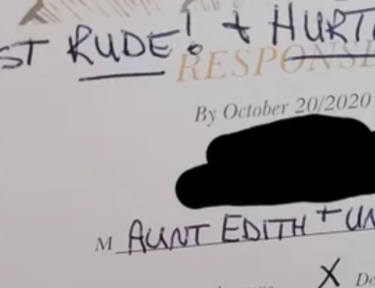Here’s Why You Should Never Just Throw Away a Boarding Pass
This was originally done in order to speed up the check-in process and allow for the flier to better confirm any changes in flight schedules, but the convenience has brought with it a whole new type of cybercrime.
It turns out that pretty much anyone who has access to the QR code on either your paper or e-ticket—even for just a second—can end up getting your first and last name, flight number, seat number, and frequent flier information.
“Big deal”, you might say. “What isn’t private anymore, anyways?” Though it’s true that, on the surface, this information doesn’t seem too vulnerable, the truth is that, once they have these key pieces, hackers are actually able to log-in as “you” on most airline websites.
From there, they can see your flight history – including upcoming flights – they can cancel any existing reservations, and even worse, may end up getting access to your credit card information.
It’s a frightening reality, considering that a person could not only put your financial future in jeopardy, they could also harm you physically, if they were so inclined. Think about it: an unhinged stranger sees someone throwing their boarding pass away in an airport terminal, and all of a sudden they know intimate details about the person. Very scary stuff!
How can a QR code reveal personal information?
Believe it or not, there are actually dozens upon dozens of barcode scanning apps available at little or no cost. And, to be clear, just because a smart phone user has one of these apps on their phone doesn’t mean that they are doing anything shady.
You see, they were originally made to help sturdy up QR code scanning processes that may be tough due to lighting, limited features on other apps, or other barriers in information consolidation. Unfortunately, thieves have gotten hip to the fact that all they need is one of these codes in order to get a hold of a passenger’s most private information.
Keep those codes hidden!
When you are in an airport, it’s important that you treat your ticket like you would your wallet or your cell phone. Keep it close to your body and in a place where a pickpocket could not get to it, like your front pocket or a cross-body bag. Once you get to your arrival city, tear it up, and throw it away.
And it probably goes without saying, but it is NEVER a good idea to take a photo of your boarding pass and share it on social media, even if your account is private. This is because some of the better versions of these scanning apps actually allow the thieves to access the info behind the QR codes strictly from screen shots alone. Scary!
Now, it’s important to note that this doesn’t just affect air travel. In fact, any type of product that has this type of code and is tied you, either by name, address, credit card, etc., could put you in a risky situation.
Learn even more about these QR code-related crimes by watching the video below. Sometimes being vigilant and aware is the best thing you can do!
What do you think of this new rash of cybercrimes? Have you ever been a victim of QR code fraud? How do you keep your personal information from getting into the wrong hands? Tell us all about your thoughts and experiences in the comments section below!




